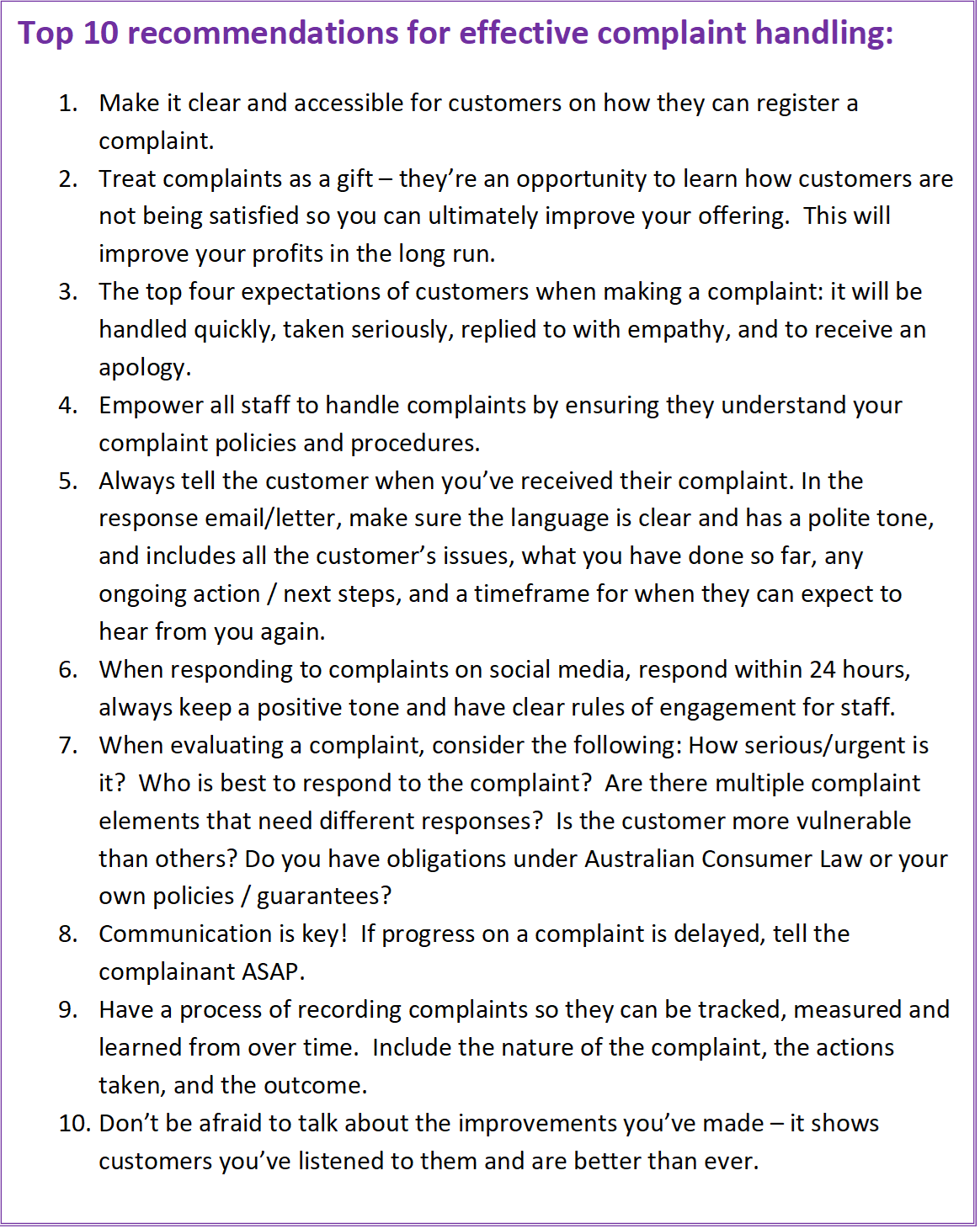This guest editorial was written for the ANZSOG/National Regulators Community of practice monthly newsletter, highlighting new additions to the Regulation Policy and Practice collection on APO. The RP&P collection brings together a range of practical resources from national, local and state/territory governments, regulatory agencies and external institutions conducting monitoring, inquiries and reviews. You can receive this newsletter by joining the ANZSOG/National Regulators Community of Practice (membership is free) or subscribe to the newsletter directly.
By Fiona Brown
The role of the complaint professional requires high level communication skills. There is no doubt it can present stressors and may be emotionally demanding which can lead to exhaustion or compassion fatigue. Complaint handling professionals do however find deep meaning and enjoyment in their role, keeping themselves positive and resilient with the support of their teams and organisations.
The last two years have been particularly difficult for us all, with multiple natural disasters and the ongoing COVID-19 pandemic. In my role as CEO at the Society of Consumer Affairs Professionals (SOCAP) I often hear from members about an increase in customers who are stressed, under financial pressure, as well as a rise in difficult consumer behaviour and escalating cases, all of which is putting further pressure on complaint handlers, many who continue to manage these challenges while working from home.
SOCAP research, presented in Complaints: The New Most Valuable Asset white paper, confirmed that complaints professionals now play an even more important role for consumers as an essential connection point between consumer, organisation, industry and community. We are experiencing the rise of different skills and characteristics in complaint professionals such as adopting higher order skills of deep empathy and connection, reading between the lines, quickly spotting red flags, and the need for delivering procedural fairness with resilience and calm.
At the SOCAP Symposium 2022 there was interesting discussion on whether new challenges had emerged over the past two years for managing unreasonable complainant conduct (UCC) and this was viewed via the lens of service delivery excellence, boundary of role, employee care, and dysregulation; all impacting our ability to cope with stressors and constant change at both an individual and society level. While strategies and effective engagement must be in place to manage UCC and support staff, it is important to manage and avoid the flow-on impacts and we know it is far better and more effective to label customer behaviours, rather than the people.
There has been much consensus in the SOCAP community to the idea that if something good can come from the difficulties associated with the pandemic, we will become a kinder society and show more respect and empathy to those in our communities who are doing it tough.
For every compassionate complaint and customer care professional, asking of themselves and perhaps their organisation “what can I do?, what should I do?, what more can I do?”, it is critical to be aware of and understand where your boundaries are, and why they are in place, for your, and your customer’s welfare.
Professional boundaries must be managed with care and empathy and by ensuring consistency between organisational policies and protocols and how and what is communicated to customers. For this to happen, staff need to know exactly what is and isn’t expected of them.
Of course, it is imperative that the factors contributing to vulnerability are well understood to ensure that the required care is provided. Special skills and communication frameworks are vital for identifying, assessing, and responding to customers in vulnerable circumstances. However, it is not the role of complaint professionals to act as a counsellor or to provide long-term support; it is to listen and hear, respond without judgement, with empathy, be culturally appropriate, provide fair processes, appropriate referrals and be empowering for the customer.
For complaint handlers to maintain this self-awareness and continue to provide effective high level communication skills, resilience is key. Being able to maintain resilience and process difficult emotions is a crucial attribute for all consumer affairs professionals and supports the setting of healthy professional and personal boundaries. Ensuring frontline and complaints teams are trained and prepared for effective complaints management will serve your organisation to present a customer experience that is fair, empathic, responsive, and timely.
